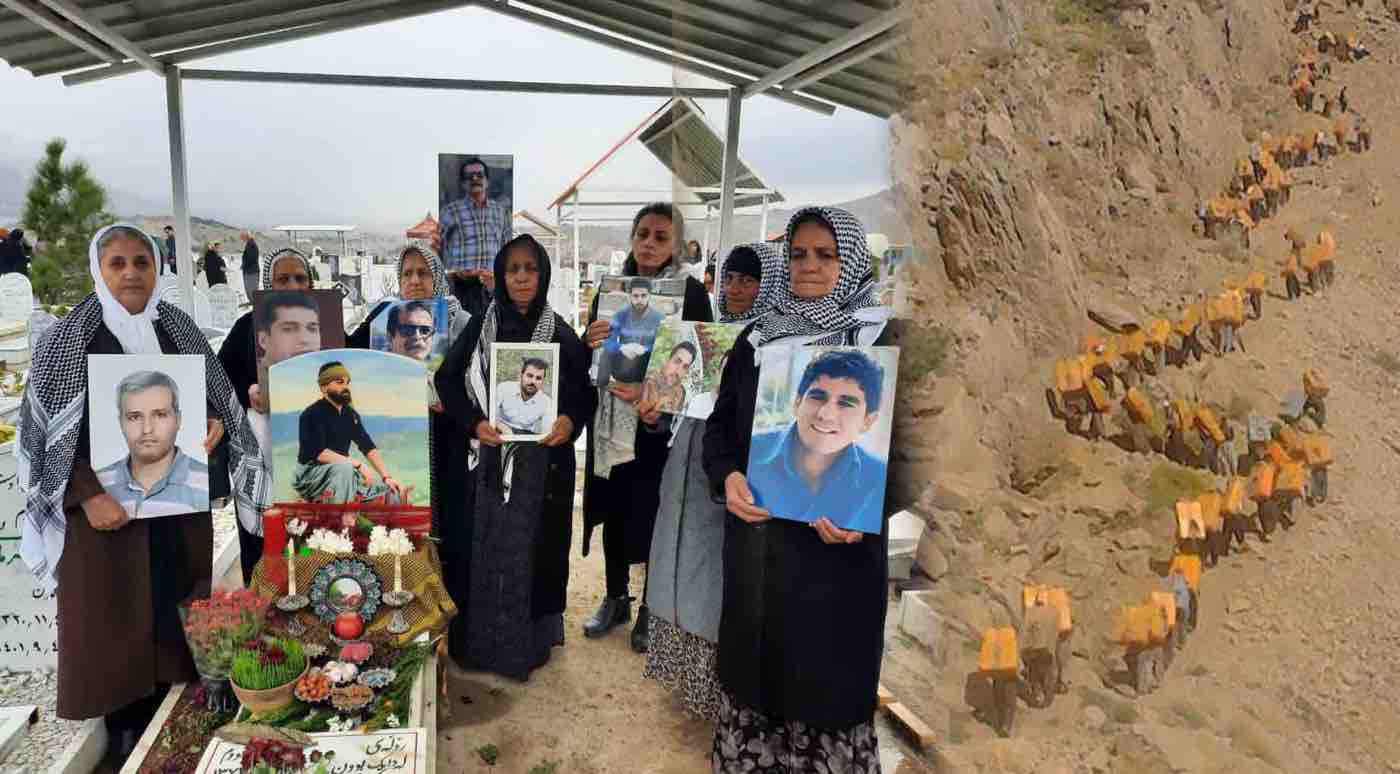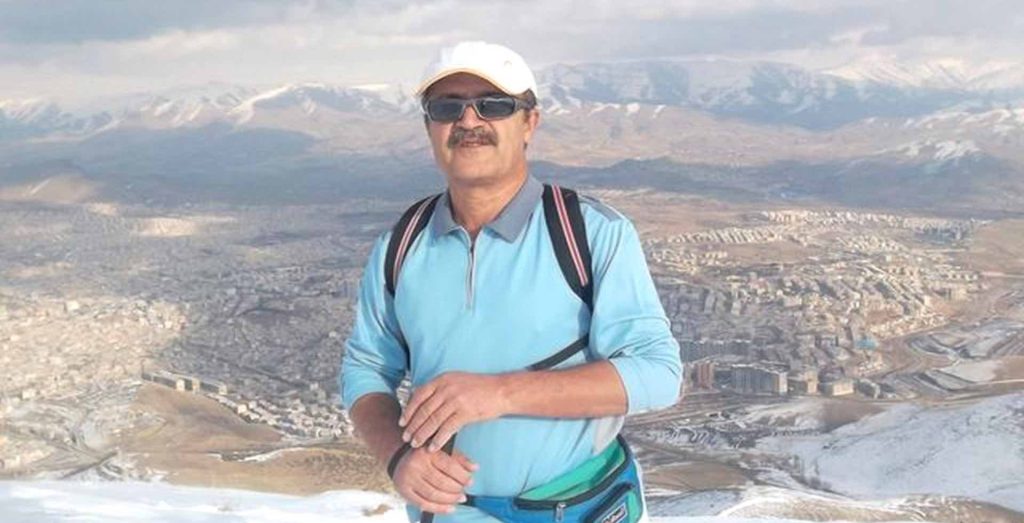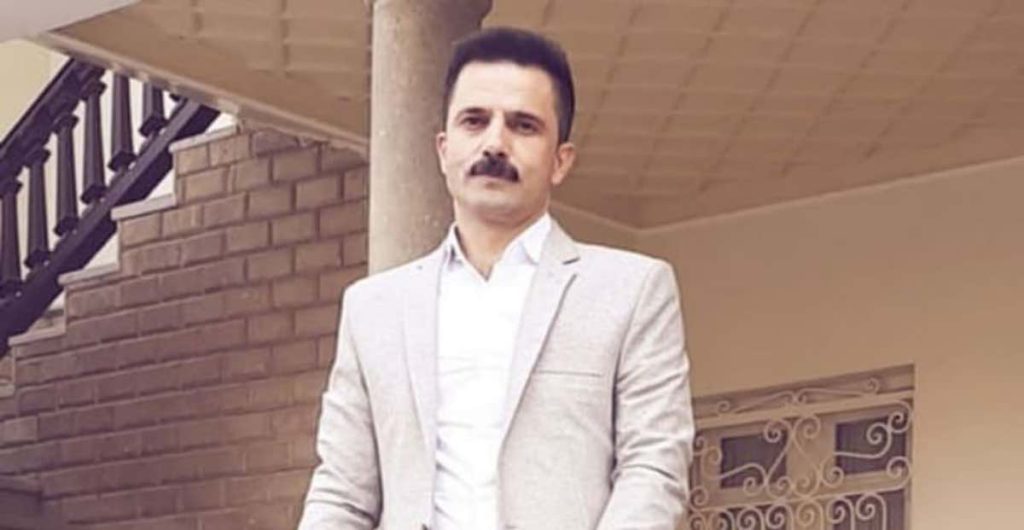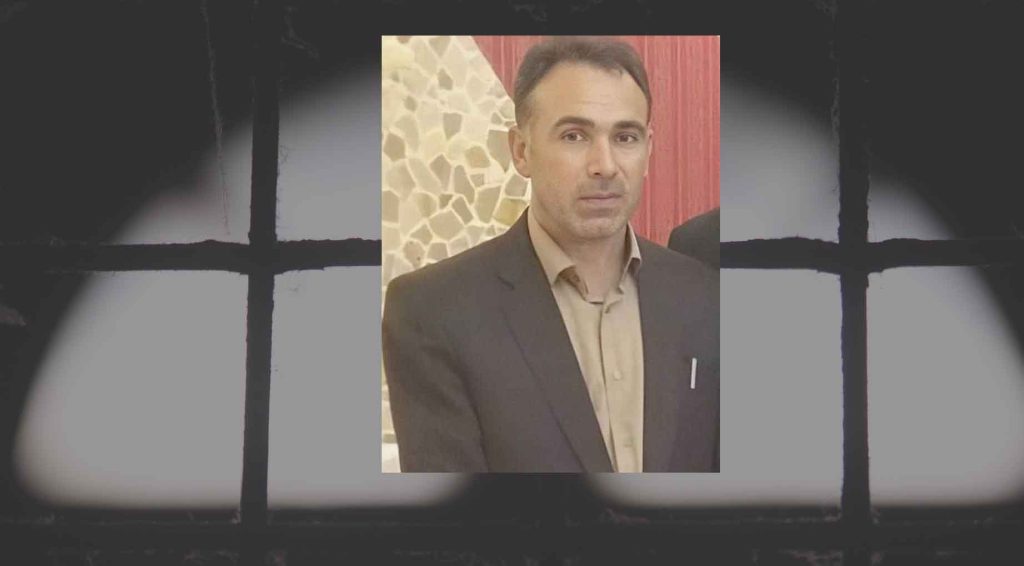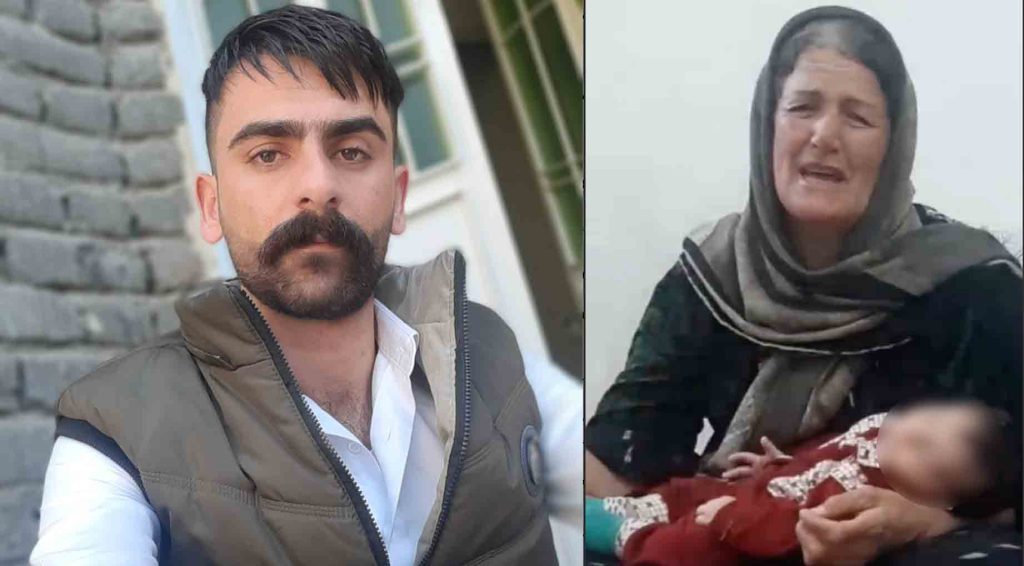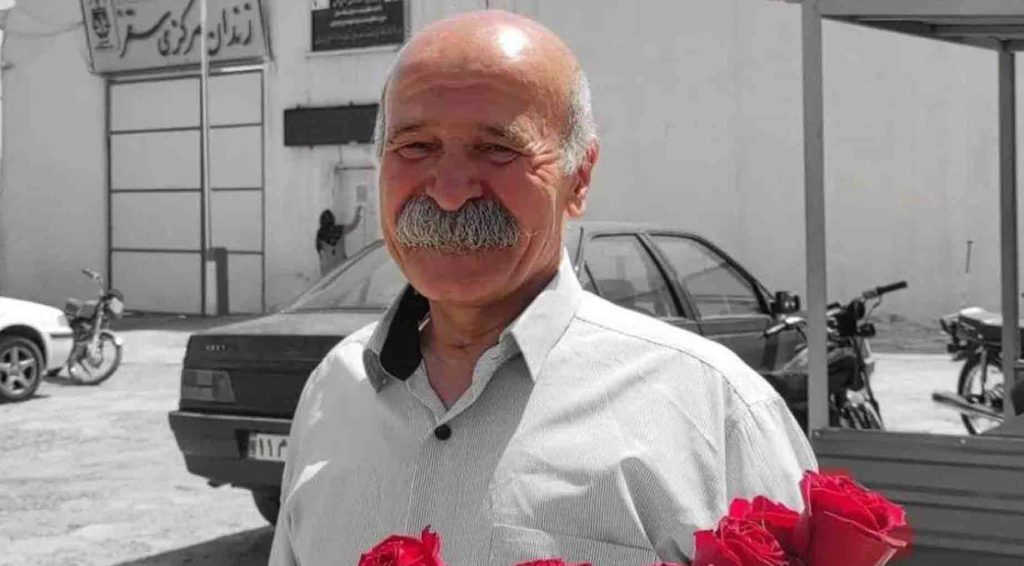This report addresses the violations of the human rights of Kurdish civilians in Iran during the Iranian year 1402 (21 March 2023 – 19 March 2024). As in previous years, the rights of Kurdish people have continued to be violated due to their language, religions, culture, genders, sexual orientations, and class and political affiliations by the Islamic Republic’s discriminatory laws and repressive and violent crackdowns by its security, military, judicial, and executive institutions.
In various sections of this report, statistics regarding the killing and injury of kolbars, execution of death penalties, Kurdish political and religious prisoners at risk or sentenced to death, femicide, civilians’ deaths due to mine explosions and workplace incidents, the summoning and detention of Kurdish civilians and activists for political reasons, issuance of verdicts against Kurdish civilians and activists on political charges, freedom of religion and belief, and pressure on the families of the killed protesters have been compiled.
Despite the efforts of the Kurdistan Human Rights Network (KHRN) to inform and document numerous cases of human rights violations in Kurdistan, it is important to emphasise that the statistics and information presented in this report only include cases that have been confirmed and published by KHRN, or where news and information from other sources are used, KHRN has independently verified their authenticity. Nevertheless, we believe this report does not encompass all instances of violations against Kurdish individuals in Iran, and undoubtedly, many other cases exist where individuals and families have not been able to speak out due to various reasons, including pressure from security institutions, and have not been highlighted in the media or human rights organisations.
Arrests
In the past year, at least 650 Kurdish civilians and activists were arrested on political grounds by the security forces or judicial institutions of the Islamic Republic of Iran in different cities of Ilam, West Azerbaijan, Kurdistan, Kermanshah, Tehran, East Azerbaijan, Khuzestan, Razavi Khorasan and Mazandaran provinces. The highest number of arrests took place in West Azerbaijan, followed by Kurdistan, Kermanshah and Ilam provinces.
While some of these individuals were temporarily released on bail after a period of detention, others remain in custody, and some have been transferred to prison to serve their sentences.
Issuance of Verdicts
In the past year, at least 170 Kurdish civilians and activists received verdicts from Revolutionary, Criminal, and Special Clerical courts in the provinces of West Azerbaijan, Kurdistan, Kermanshah, Ilam, Tehran, Hamadan, Mazandaran, Razavi Khorasan, East Azerbaijan, and Khuzestan. These verdicts included death penalty, imprisonment, suspension of prison sentences, flogging, exile, monetary fines, revocations of clerical status, bans on leaving the country, dismissals, and more. The judgments were either issued or confirmed in appellate courts.
One of the inhumane sentences handed down and carried out was the flogging of Roya Hashmati, a resident of Tehran from Sanandaj. In May 2023, she was detained for 11 days, fined and sentenced to 74 lashes for posting a picture of herself on the street without covering her hair.
Families of Killed Protesters
In the past year, much like in previous years, many families, whose loved ones were killed during the anti-government uprising of Jin, Jiyan, Azadi (Women, Life, Freedom) or in years prior by the Islamic Republic of Iran, faced pressure from security institutions. Numerous Kurdish families were summoned, detained, and sentenced by security forces or judicial bodies for pursuing justice for their slain family members or organising commemorative events in their memory.
Among the bereaved families were those of Jina Amini, Armita Geravand, Komar Deroftadeh, Shaho Bahmani, Momen Zand-Karimi, Peyman Menbari, Darioush Alizadeh, Yahya Rahimi, Shadman Ahmadi, Aram Habibi, Sarina Saedi, Mohammad Mehdi Karami, Kamal Ahmadpour, Matin Nasri, Azad Hosseinpouri, Erfan Khazaei, Mohammad Hassanzadeh, Mehdi Babrnezhad, Ehsan Ghassemifard, Shahriar Mohammadi, Farjad Darvishi, Mohsen Gheysari, Jawhar Fattahi, Habibollah Fathi, Mohsen Niyazi, Foad Ghadimi, Zanyar Aboubakri, and Mohammad Amini, among others.
Freedom of Religion
During this period, at least 16 Sunni Kurdish clerics and activists and six Yarsan Kurdish activists were summoned, detained, sentenced, or executed by security forces or judicial institutions in various cities.
Sunni religious prisoners Ghassem Abasteh, Ayoub Karimi, Davoud Abdollahi, and Farhad Salimi were executed on charges of “spreading corruption on earth” (efsad-e fel arz) in Ghezel Hesar Prison in Karaj. Additionally, Anvar Khezri, Kamran Sheikheh, Khosrow Besharat, and Farhad Salimi face the imminent execution of a similar verdict in a joint case. These individuals have been in prison for the past 14 years.
Reza Rasaei, a Yarsani political prisoner in Kermanshah Prison, was sentenced to execution on charges of “involvement in intentional murder” in a trial. He was arrested on 24 November 2022 by Criminal Investigation Department in Karaj for attending a commemoration ceremony for Seyed Khalil Alinezhad, a distinguished artist and Yarsani community leader, held on 18 November 2022 in Sahneh.
Mohammad Khezrnezhad, a 45-year-old Sunni Kurdish cleric who was detained by security forces in Bukan during the Women, Life, Freedom uprising, was sentenced to death and 16 years’ imprisonment by Branch Three of the Islamic Revolutionary Court in Orumiyeh, presided over by Judge Reza Najafzadeh. The charges against him included “spreading corruption on earth” (efsad-e fel arz), “harming the territorial integrity or independence of the country” and “propaganda against the state”.
Kolbars
In the past year, at least 39 Kurdish kolbars died in the border areas of West Azerbaijan, Kurdistan, and Kermanshah provinces. Among them, 27 kolbars, including a child, were directly shot by the military forces of the Islamic Republic of Iran, and one person was shot by Iraqi border forces. Additionally, a kolbar was tortured to death by the military-security forces of the Islamic Republic of Iran, who then threw his body down from the mountain.
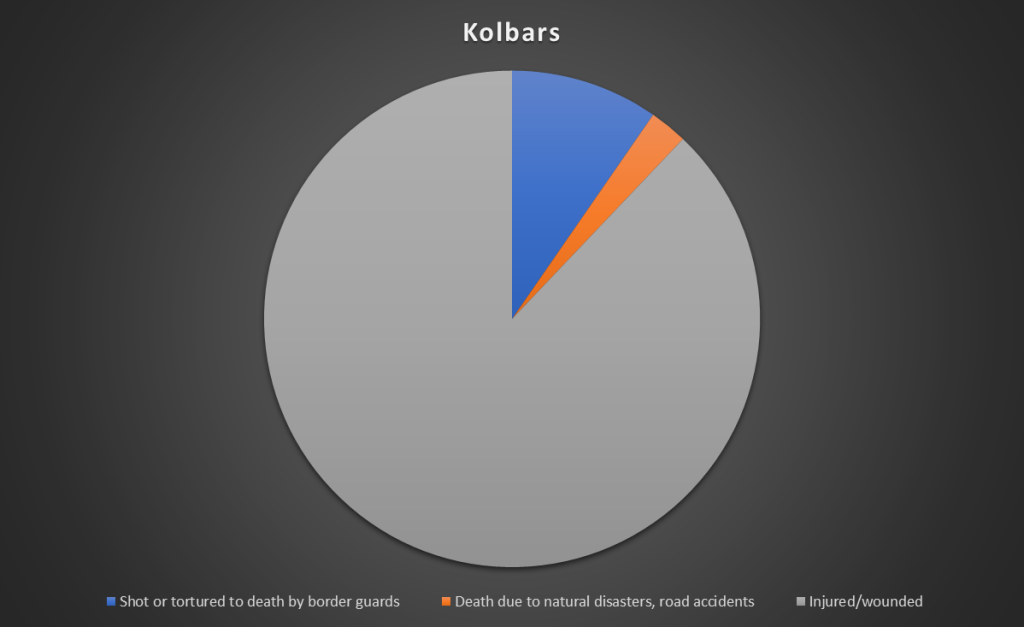
Additionally, two kolbars were killed in car accidents during a chase by Iranian forces. There were also two deaths from falls, two from frostbite, two from drowning in border rivers, one from a heart attack and one from a road accident on kolbar routes.
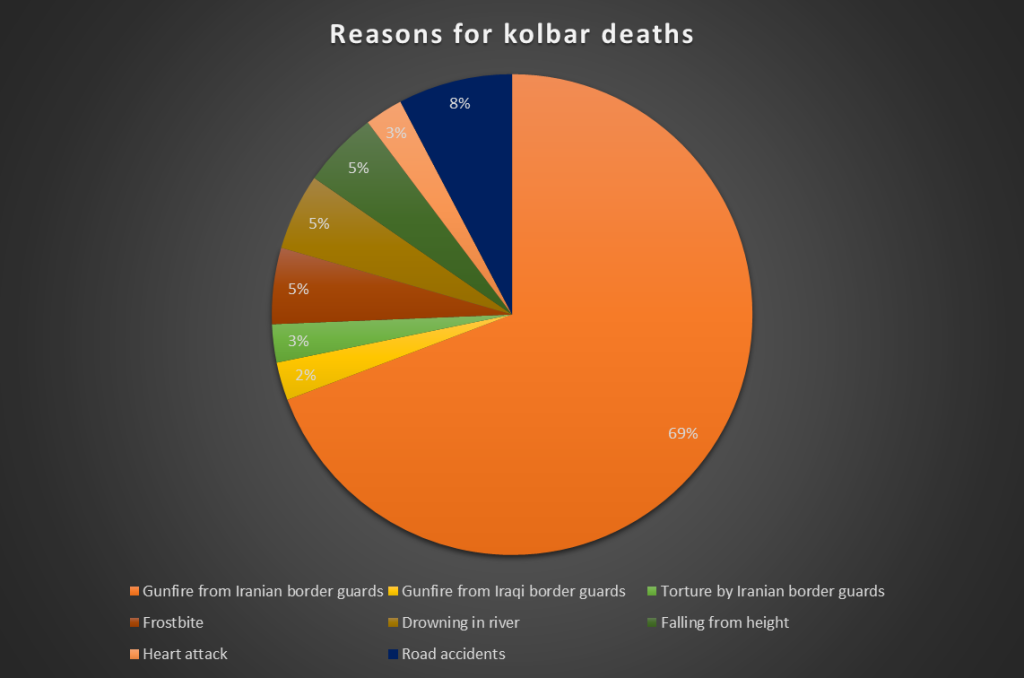
Baneh in Kurdistan province and Nowsud in Kermanshah province were the deadliest regions for kolbars, with 19 and eight fatalities respectively. Following them, Marivan in Kurdistan Province had five cases, Saqqez in Kurdistan Province had three, Piranshahr in West Azerbaijan Province had two, and Sardasht and Orumiyeh in West Azerbaijan Province each had one fatality.
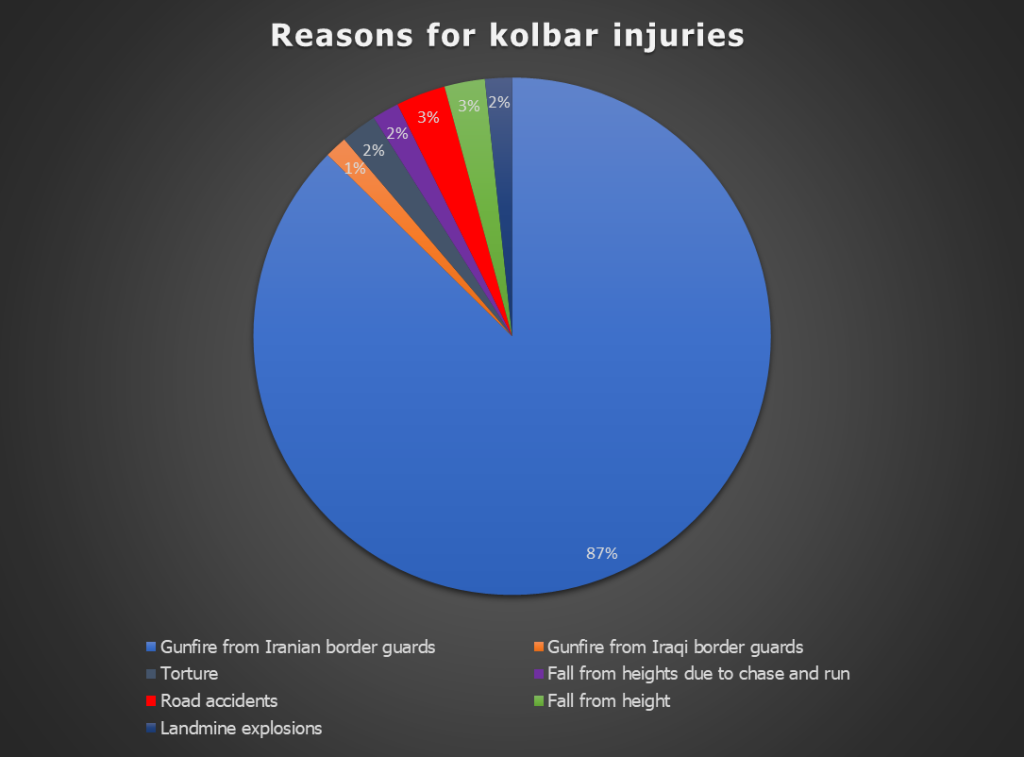
During this period, at least 356 kolbars in the border regions of West Azerbaijan, Kurdistan, and Kermanshah provinces suffered injuries and severe harm. Among them, 311 individuals, including 15 children, were shot by the military forces of the Islamic Republic of Iran, eight were assaulted, six fell from heights during pursuits by these forces, and five were injured by the shooting of Iraqi border guards. Furthermore, 11 were injured in road accidents, nine fell from heights, and six were wounded due to landmine explosions along kolbar routes.
Executions
The Kurdistan Human Rights Network (KHRN) reported and confirmed the execution of death sentences for 121 prisoners in various prisons across the country in the past year. Most of these individuals were charged with “premeditated murder”, “drug trafficking”, and “theft”.

Among them, Kurdish Sunni prisoners Ghassem Abasteh, Ayoub Karimi, Davoud Abdollahi, and Farhad Salimi were executed in Ghezel Hesar Prison of Karaj after 14 years of imprisonment on charges of “spreading corruption on earth” (efsad-e fel arz).
Additionally, three Kurdish prisoners, Vafa Hanareh, Aram Omari Berdiyani, and Rahman Parhazou, as well as Nasim Namazi, an Azerbaijan-Turkic woman prisoner, were executed in Orumiyeh Central Prison on charges of “involvement in intelligence cooperation and espionage for Israel”.
Also, Kurdish political prisoners Pezhman Fatehi, Mohsen Mazloum, Mohammad Faramarzi and Vafa Azarbar were executed on charges of “espionage for Israel”.
*The KHRN, emphasizing the principle of the right to life, publishes and registers news and execution statistics without regard to the ethnic background of individuals and the location of the execution, based on verified sources after careful verification.
Political and Religious Prisoners Sentenced to Death
Currently, at least seven Kurdish political prisoners and Sunni Kurdish religious prisoners, including Reza Rasaei, Mohammad Khezrnezhad, Yousef Ahmadi, Nayeb Askari, Khosrow Besharat, Anvar Khezri, and Kamran Sheikheh are facing imminent and definite execution in Orumiyeh, Karaj’s Ghezel Hesar, Sanandaj, and Kermanshah prisons. These individuals have been charged with “spreading corruption on earth” (efsad-e fel arz), “armed insurrection” (baghi) and “enmity against God” (moharebeh) through membership in opposition Kurdish parties or Sunni religious groups, as well as “involvement in intentional murder”.
– Reza Rasaei was arrested on 24 November 2022 by Criminal Investigation Department in Karaj for attending a commemoration ceremony for Seyed Khalil Alinezhad, a distinguished artist and Yarsani community leader, held on 18 November 2022 in Sahneh, which evolved into an anti-government protest, influenced by the nationwide demonstrations triggered by the government’s killing of Jina Mahsa Amini. During his detention, he endured severe physical and psychological torture to extract forced confessions. Branch Two of the Criminal Court in Kermanshah sentenced him to death, payment of blood money, one year in prison, and 74 lashes for “involvement in intentional murder” of Nader Beyrami, the head of the Intelligence Organisation of the Islamic Revolutionary Guard Corps (IRGC) in Sahneh, Kermanshah Province, “involvement in the intentional infliction of non-fatal injuries”, “demonstrating strength with a knife” and “disrupting public order by creating chaos and commotion”. The ruling was later upheld by the Supreme Court. Rasaei was sentenced to death under the Islamic law of qisas, or retribution-in-kind, which gives the victim’s family the right to retaliate.
– Nayeb Askari was arrested in Orumiyeh on 24 March 2021 by the Intelligence Organisation of the IRGC and after three months of detention and enduring physical and psychological torture, was transferred to the city’s central prison. After his arrest, the IRGC’s Intelligence Organization informed him that in 2018, he had been sentenced to death in absentia on charges of “enmity against God” (Moharebeh) through “membership” in the Kurdistan Free Life Party (PJAK). On appeal, the sentence was overturned, but in October he was again sentenced to death by Branch Two of the Islamic Revolutionary Court in Orumiyeh.
– Yousef Ahmadi was arrested by security forces in Sanandaj on 27 April 2020 and was held in solitary confinement for an extended period, enduring severe physical and psychological torture. In September, Branch One of the Islamic Revolutionary Court in Sanandaj sentenced him to death on charges of “armed insurrection” (baghi) through membership in the Democratic Party of Iranian Kurdistan and “taking part in the murder of two members of the Islamic Revolutionary Guard Corps (IRGC)”.
– Anvar Khezri, Kamran Sheikheh, Khosrow Besharat, and Farhad Salimi were arrested by security forces between December 2009 and January 2010 in Saqqez and Mahabad. Subsequently, they were taken to the Ministry of Intelligence detention centre in Orumiyeh, West Azerbaijan Province, where they were subjected to both physical and psychological torture for several months to extract forced confessions.
In March 2016, a trial was held at Branch 28 of the Islamic Revolutionary Court in Tehran, where these four prisoners and three of their co-defendants were sentenced to death on charges such as “actions against national security”, “propaganda against the state”, “membership in Salafi groups”, and “spreading corruption on earth” (efsad-e fel arz). On 25 May 2016, they were officially informed of the death sentence. Following the objection of the defence lawyer, the case was referred to the Supreme Court, and in early 2017, the sentence was overturned.
After the referral of this case to Branch 15 of the Islamic Revolutionary Court in Tehran, presided over by Judge Salavati, in June 2018, these seven prisoners were again sentenced to death on charges of “spreading corruption on earth.” Following the lawyer’s objection to the issued verdict, the case was referred to Branch 41 of the Supreme Court, and in February 2020, this verdict was upheld. Their co-defendants Ayoub Karimi, Ghassem Abasteh, Davoud Abdollahi, and Farhad Salimi were executed in recent months.
– Mohammad Khezrnezhad, a 45-year-old Sunni Kurdish cleric who was detained by security forces in Bukan during the Women, Life, Freedom uprising, was sentenced to death and 16 years’ imprisonment by Branch Three of the Islamic Revolutionary Court in Orumiyeh, presided over by Judge Reza Najafzadeh. The charges against him included “spreading corruption on earth” (efsad-e fel arz), “harming the territorial integrity or independence of the country” and “propaganda against the state”.
Potential Death Sentences for Prisoners Charged with Enmity against God and Armed Insurrection
Currently, at least nine Kurdish political prisoners, including Wrisha Moradi, Pakhshan Azizi, Hatem Ozdemir, Shaker Behrouz, Sardar Shah-Moradi, Rauf Sheikh-Maroufi, Kamran Soltani, Mohammad Faraji, and Pouria Javaheri, are being held in prisons in Orumiyeh, Sanandaj, Bukan and Tehran, and are at risk of being sentenced on charges of “enmity against God” (moharebeh) and “armed insurrection” (baghi).
Under the Islamic Penal Code of the Islamic Republic of Iran, a number of charges, including “enmity against God” (moharebeh) and “armed insurrection” (baghi), are punishable by death or imprisonment with exile.
– Hatam Ozdemir and Shaker Behrouz, Kurdish political prisoners previously sentenced to death on charges of “enmity against God” (moharebeh) due to their affiliation with one of the opposition Kurdish parties, are now awaiting a reconsideration of their case in a court in Orumiyeh, after their execution verdict was overturned by the Supreme Court of the country.
– Sardar Shah-Moradi was arrested by security forces in the fall of 2022 during the anti-government protests in Sanandaj and was charged with “enmity against God” in court. He is accused of “involvement in the murder of one of the law enforcement officers” on the 40th-day ceremony of some of the slain protests on 17 November 2022. Despite intense physical and psychological torture to extract confessions, he has rejected the accusation.
– Pouria Javaheri, from Kamiaran, was arrested on 29 November 2022 after being summoned to the office of the Intelligence Organisation of the IRGC in Kamyaran. He was initially charged with “enmity against God” (moharebeh) and “involvement in the killing of a security agent”, but was acquitted of the former. The case in which he is accused of “involvement in the killing of a security agent” has been referred to the Criminal Court and he remains in a state of uncertainty, still being held in Sanandaj Central Prison.
– Rauf Sheikh-Maroufi, Kamran Soltani, and Mohammad Faraji were arrested by security forces in Bukan during the anti-government protests and were charged with “enmity against God” in court. After several months of interrogation in a security detention centre in Orumiyeh, they were transferred to Bukan prison. They have been subjected to severe physical and psychological torture for forced confessions during detention.
– Wrisha Moradi, a member of the East Kurdistan Free Women Society (KJAR), and Pakhshan Azizi, a Kurdish activist and former political prisoner, are still detained in state of uncertainty in Tehran’s Evin Prison. Moradi was charged with “armed insurrection” (baghi), which may carry the death penalty, and Azizi was accused of “membership in a group or organization aimed at undermining national security”.
Killings in Detention Centres and Prisons
In the past year, at least six Kurdish civilians, Saman Darvishi, Musa Esmaeili, Peyman Galvani, Pouya Babaei, Mansour Salamat, and Payam Abdi were killed under torture in Iranian prisons and detention centres.
– Saman Darvishi, a 31-year-old prisoner from Harsin, who had been arrested about a year ago on charges of theft, was subjected to torture by prison officials in the Greater Tehran Central Penitentiary on the night of 8 May 2023 and lost his life.
– Mousa Esmaeil, a 31-year-old father of two from the village of Pesveh in Piranshahr, was arrested by the Ministry of Intelligence on 7 May 2023 and transferred to the detention facility of this security institution in Orumiyeh. On 8 July 2023, security forces informed his family of his death in the detention centre.
– Peyman Galvani, a 24-year-old man from Mahabad, who was arrested without a warrant by security forces on 25 June 2023 and taken to the Ministry of Intelligence detention centre in Orumiyeh, was killed under torture by security interrogators.
– Pouya Babaei, a 26-year-old tradesman from Javanrud, who was arrested by law enforcement officers on suspicion of smuggling near Homeyl city, was killed by officers in a police detention centre in Kermanshah due to a concussion caused by a beating.
– Mansour Salamat, from the village of Pesan in Orumiyeh, was arrested 27 December 2023 on charges of “possessing hunting weapons” during a security police raid on his family home. He was transferred to the Public Security Police detention centre in Orumiyeh known as Doqooz Pelleh, and after a few hours, he lost his life due to torture by the agents of this security institution.
– Payam Abdi, from Nowsud in Kermanshah Province, who was arrested by the Kermanshah police on charges related to “social crimes”, was tortured to death on 9 January 2024 in a detention facility.
Prisoner Deaths Due to Deprivation of Medical Care
In the past year, at least four Kurdish prisoners died in Orumiyeh Central Prison, either due to lack of access to medical care or by committing suicide under pressure from prison officials and security services. Abdollah Badavi and Nasser Hassanpour lost their lives on 15 April 2023 and 1 May 2023 respectively due to being denied access to medical services. Prisoners Amir Shahbazi and Shahin Gallehdari committed suicide on 16 January 2024 and 26 February 2024 respectively.
Killing of Civilians
During this period, at least 14 Kurdish civilians, Armita Geravand, Behzad Azizi, Azad Rezaei, Azad Sattar-Panah, Eynollah Ghadernezhad, Qazi Mustafa Ali, Sirous Shokri, Ali Nazari, Rahman Shams, Mohammad Mehrdadi, Hamed Bagheri, Vahed Ghaderi, Kaveh Goyli and Kavan Amjadnia were killed by the police, Revolutionary Guards, and morality police forces in the provinces of Kermanshah, Kurdistan, West Azerbaijan, Tehran, and Alborz.
– Behzad Azizi, a 19-year-old man from the village of Darreh Sheikhan in Baneh, was shot and killed by IRGC forces during an inspection at the entrance to Baneh on 22 March 2023.
– Azad Rezaei, from Kermanshah, was chased and shot in the head by police officers while driving his car near Niyayesh Square in Kermanshah on 27 March 2023.
– Eynollah Ghadernezhad was killed on 2 April 2023 when a group of border traders in the Gadar region of Oshnavieh were targeted by military forces.
– Qazi Mustafa Ali, a 50-year-old civilian from the Kurdistan Region of Iraq, was fatally shot on 11 July 2023 by IRGC forces stationed in the border area of Bamo in the Ezgeleh district of Salas-e Babajani, Kermanshah Province, while extinguishing a fire in the border area.
– Ali Nazari was shot dead by police forces in the Jafarabad neighbourhood of Kermanshah, Kermanshah province, on 26 July 2023.
– Sirous Shokri, from Salmas, was killed by gunfire at the IRGC base in Orumiyeh on 24 July 2023 while doing his military service.
According to a source close to Shokri, he had been threatened several times by one of the commanders of the IRGC base due to the fact that one of his cousins, Musa Kobani, was one of the known martyrs of the war against the Islamic State (IS) in Kobani, and that he had political arguments with the IRGC forces at the base. Shokri had also been sentenced to an additional three months of mandatory military service in recent months as a result of this pressure.
According to this source, IRGC officials initially spread a rumour that Shokri had been killed in a clash after a Kurdish opposition party allegedly attacked the base. However, a few hours later, they reported a different rumour, stating that he had taken his own life at the base. Shokri’s family was initially told by IRGC officials that he had committed suicide, but an autopsy carried out by the Department of Forensic Medicine revealed that he had been “killed with a bullet from a distance and the suicide hypothesis was rejected”.
– Rahman Shams, from Maku, was shot dead by his superior at the army base in Qasr-e Shirin on 17 August 2023 while doing his military service.
– Mohammad Mehrdadi, a retired IRGC Colonel from Mehran in Ilam Province, was shot dead by a senior IRGC commander’s guard on 5 September 2023 while protesting outside the IRGC command headquarters in Tehran.
– Hamed Bagheri, from the village of Tajjar Akbar in Eslamabad-e Gharb, Kermanshah Province, was killed by the gunfire of security forces in Golshahr, Karaj, on 13 September 2023.
– Vahed Ghaderi, a tradesman from Saqqez, was chased and shot by security forces on 21 October 2023 while travelling in his private car on the Sarshiv road in Saqqez on suspicion of transporting contraband. He was killed after he was shot and his car overturned.
– Armita Geravand was born in Kermanshah on 2 April 2006. Her family are from Kuhdasht, Lorestan Province, and have lived in Tehran in recent years. On 1 October 2023, this 17-year-old girl was beaten and abused by government agents (veil enforcers) on the Shohada line of the Tehran metro for not wearing a hijab. On 28 October 2023, state news agencies announced Geravand’s death after 28 days in a coma in the intensive care unit of Tehran’s Fajr Hospital.
– Azad Sattar-Panah, a tradesman from Saqqez, was fatally shot by border guards in the Hangeh-ye Zhal border area of Baneh, Kurdistan Province, on 7 November 2023 after a verbal altercation with the border guards.
– Kaveh Goyli, from Sanandaj, was killed by police gunfire in the twenty-fifth district of Sanandaj on 24 December 2023.
– Kavan Amjadinia, a tradesman from Sardasht, was fatally shot in the head by law enforcement officers while driving his private vehicle on the way to the village of Savan in Sardasht on 27 February 2024.
Suspicious Deaths of Civilians
In May 2023, two people died in suspicious circumstances in Abdanan.
– Bamshad Soleyman-Khani, a 21-year-old man from Abdanan and a student of mechanical engineering at Ilam University, returned home on 24 May 2023 after being released from prison. However, he was taken to hospital in the middle of the night with signs of poisoning and died in hospital on 28 May 2023. The young man’s suspicious death sparked a wave of public protests and market strikes in Abdanan.
– Mansoureh Sagvand, an 18-year-old woman from Khorramabad and a law student at Payame Noor University in Abdanan, died in suspicious circumstances a few days after she stopped working with the police as a volunteer, which she had announced on her Instagram account. Her death was attributed to a suspected heart attack.
Extrajudicial Killings
In the past year, three members of the Democratic Party of Iranian Kurdistan (PDKI) and a member of the Komala Party of Iranian Kurdistan were assassinated in the Kurdistan Region of Iraq.
– Adel Mohajer and Loghman Aji were killed by the forces of the Islamic Republic of Iran on 7 July 2023 near the town of Qaladze, and Siamand Shaboyi was killed on 12 July 2023 near Erbil.
– Sohrab Rahmati, a political activist and a member of the Iraqi Kurdistan Region Bar Association, who was representing several cases related to extrajudicial killings of opponents of the Islamic Republic of Iran, was severely injured in an assassination attempt by forces of the Islamic Republic of Iran in Erbil on 16 November 2023.
– Shoaib Zarei, a member of the Komala Party of Iranian Kurdistan, was assassinated by agents of the Islamic Republic of Iran on 16 March 2024 near the party’s camp in the village of Zirgwez in Sulaymaniyah, the Kurdistan Region of Iraq. The assassin was arrested by Kurdistan Region security forces at the Penjwen border crossing as he attempted to flee the region.
Worker Deaths during Work
In the past year, at least 41 Kurdish workers, including two children, lost their lives in work-related accidents. In Kermanshah province alone, 27 workers lost their lives in work-related incidents in the first half of the year (between 21 March 2023 and 21 November 2023), according to a report by the Kermanshah Forensic Medicine Department. The main reasons for these fatal accidents were the lack of safety standards in the workplace.
Additionally, two petrochemical workers in Ilam committed suicide after being dismissed.
Femicide
In the past year, at least 31 cases of femicide have been reported in Kurdistan, with 13 cases in West Azerbaijan Province, 13 cases in Kermanshah Province, two cases in Kurdistan Province, and three cases in Ilam Province.
Four of these women were minors and at least three of them were victims of child marriage.
The motives for these murders, mostly committed by male family members, include “family disputes”, “having extramarital relationships”, “requesting divorce”, “opposition to the husband’s remarriage”, “opposition to the woman’s remarriage after divorce”, and motives referred to as “honour killing”.
Explosion of Landmines and War Munitions
During this period, at least two people were killed as a result of landmine explosions in Kermanshah Province and a civilian from Baneh was killed due to a landmine explosion in the Kurdistan Region of Iraq. Additionally, at least twelve individuals, including two children, were injured or suffered amputations due to mine explosions in the provinces of Ilam, Kermanshah, Kurdistan, and West Azerbaijan.
Some of these landmines and war munitions date back to the Iran-Iraq War and the Islamic Republic’s military attack on Kurdistan in the 80s. The remaining explosives were deployed during recent military operations by the Islamic Republic of Iran to counter the presence of Kurdish opposition party members in the region.
Asylum Seekers
In the past year, two Kurdish asylum seekers, Hemin Shamamizadeh from Sardasht and Esmaeil Darabi from Sarpol-e Zahab, died of frostbite while trying to reach the European Union in the forests on the border between Belarus and Poland on 20 May 2023 and 7 November 2023 respectively.
Similarly, Nima Shahsavari and Hiwa Mostafaei, two Kurdish asylum-seekers from the village of Khaneqah in Paveh, disappeared on 24 December 2023 when their boat capsized while crossing the English Channel from France to England. To date, no information has been found about their fate.
Additionally, Sohrab Rahmati, a lawyer and member of the Iraqi Kurdistan Region Bar Association, who was handling several cases related to extrajudicial killings of opponents of the Islamic Republic of Iran, was subjected to an armed attack by Iranian forces in the city of Erbil on 16 November 2023 and was wounded.

